Are you wondering whether you are an introvert or have social anxiety? There is a popular misconception that introversion and social anxiety naturally go together (or are in fact, the same thing). In fact, one is a temperament, while the other is a mental health condition.
While introversion can involve certain challenges such as needing a lot of alone time or preferring not to make small talk, social anxiety has life-altering consequences such as avoidance and physical manifestation.
While rates of introversion have been estimated at anywhere from 25 to 40%, rates of social anxiety are much lower.[1] In fact, only 12% of the population can expect to experience social anxiety disorder during their lifetime.[2]
This article will describe the typical signs of both introversion and social anxiety, as well as distinguish between the two concepts based on their differences. It will also discuss the unique case of being an introvert with social anxiety (since it’s possible to be both).
Sections
Introvert characteristics
There is a stereotype that introverts just don’t like people. However, introversion is a complex inborn temperament with many different features.[3]
Below are some of the most common signs that you might be an introvert.[4]
1. You prefer fewer friends and more one-on-one conversations
You detest small talk and prefer deep and meaningful conversation.[5] You also prefer to keep your friendship circle small, including only the people with whom you have a deeper connection. You also tend to be a loyal friend.
2. You don’t feel bored or lonely when spending time alone
You are happy being alone and able to entertain yourself with solitary activities. In fact, you sometimes feel more lonely at large gatherings with strangers than if you were simply alone.
3. You need time alone to recharge
When you do socialize, you need a lot of downtime before and afterward to recharge yourself mentally. Your home is your sanctuary and a place to gather your energy. And, if you spend too much time with other people without a break, you can become irritated.[6]
4. You are a deep thinker
You have a rich and creative inner world of ideas and thoughts and enjoy taking time to ponder deep questions.
5. You take longer to speak
Since you process ideas more deeply, it can take you longer to speak. You probably prefer asynchronous communication (e.g., email), since it gives you more time to respond.
6. Being the center of attention does not feel rewarding to you
You don’t necessarily feel anxious in the spotlight, but it is not inherently rewarding to you. This means that you’ll fulfill the role when it’s necessary, but you don’t seek it out. You also don’t particularly enjoy receiving praise or recognition, and prefer working behind the scenes.
7. You prefer written to verbal communication
While you are an eloquent writer, but find you can’t convey the depth of your thoughts through verbal communication. For this reason, you prefer writing to speaking.
8. You prefer to work alone rather than in a group
You prefer working alone, because you do your best work when you can focus uninterrupted. Deep work with long periods of concentration feels most fulfilling to you.
9. You are good at reading people
You are good at reading other people and picking up on their nonverbal communication. You also prefer to listen rather than talk.
10. You need time to get used to new things
You tend to prefer routine to spontaneity, and may take time to adjust to new situations. For example, in one study, it was shown that introverts may show higher blood pressure when measured in a clinic versus at home because of “white-coat” hypertension.[7]
11. Networking is draining
You are not necessarily anxious about networking, but it can feel shallow and like a waste of time to you. While you can “fake” being an extrovert in networking situations, this usually comes with a period of feeling burned out and needing to recharge.
Signs you have social anxiety
Social anxiety is a mental health issue rather than a temperament and has a negative impact on all areas of your life.[8]
Below are some common signs that you may have social anxiety.
1. You avoid social or performance situations.
You go out of your way to avoid social or performance situations (e.g., giving speeches, networking events) because of your fear of negative evaluation.[9] This leads to anxiety and avoidance that severely restricts your life.
2. You are overly self-critical.
Your inner critic is loud, mean, and unrelenting.[10] It tells you that you are not good enough, don’t measure up, and are inadequate in other people’s eyes.
3. You experience physical symptoms of anxiety.
You have physical anxiety symptoms that don’t lessen even when you’ve been in a situation for a while.[11] This can include things like a racing heart, shortness of breath, shaking, sweating, and nausea. You also have anticipatory anxiety leading up to situations.
4. You may use poor coping strategies such as drinking alcohol.
In order to cope with your anxiety, you might develop bad habits such as drinking alcohol.[12] You might also engage in safety behaviors such as avoiding eye contact.
5. You feel less anxious when you are certain people like and accept you.
If you are in a situation where you are certain that you are accepted, then your social anxiety tends to be lessened. For example, you might feel less anxious around your family than with strangers.
6. You struggle with friendships and relationships.
Because of your social anxiety, you struggle to make friends or develop romantic relationships.[13] You want to get to know people but your anxiety prevents you from doing so.
7. Doing things in front of people makes you anxious.
When others are watching you do things such as eating, you become extremely self-conscious and anxious.[14] You are also sensitive to time pressure—things like taking a test or introducing yourself to a group create a feeling of urgency and anxiety.
8. Authority figures make you particularly anxious.
Your anxiety is triggered by speaking to people in authority such as a boss or teacher. You also feel anxious when doing certain things, such as returning an item to the store.
9. You worry about others noticing your anxiety symptoms.
You experience symptoms of anxiety in social and performance situations. In addition, you become embarrassed and ashamed about other people seeing these symptoms. This in turn fuels more anxiety.
10. You are afraid of people discovering the “real you.”
You have a core belief that you are not good enough or don’t measure up in some way (one of four core types of social anxiety).[15] And, your fear is that other people will discover this about you in a “big reveal.”
11. You are a people pleaser or lack assertiveness.
You have trouble speaking up for yourself or trying to please other people at the expense of your own well-being.
Differences between introversion and social anxiety
Now that we’ve outlined some of the important features of introversion and social anxiety, it’s time to consider the differences.
Below are the most important distinctions that will help you decide if you are experiencing social anxiety or introversion.
1. Introverts aren’t hiding anything
While a person with social anxiety may feel fundamentally flawed and afraid of “the reveal,” an introvert feels free to be themselves and doesn’t worry that others think less of them.
2. Introversion is inborn while social anxiety can be learned
We know that introverts have brain differences that distinguish them from extroverts.[16] While social anxiety may also have a genetic component, other factors such as upbringing and life experiences can play a role. Experiencing bullying or having an overly critical parent are two factors that could make it more likely that you develop social anxiety.[17]
3. Social anxiety is fear-based while introversion is driven by preference
When a socially anxious person makes a choice not to do something social, it’s usually motivated by fear and anxiety. On the other hand, when an introvert turns down plans or leaves an occasion early, it has nothing to do with fear. Rather, it’s based on the preference to spend time alone.
5. Introversion is self-accepting while social anxiety is judgmental
A socially anxious person expects others to be critical and judgmental whereas an introvert does not. During a conversation, a socially anxious person might stay quiet out of fear of saying the wrong thing. Meanwhile, an introvert might speak little because of a preference for deep thought.
6. Extraversion is the opposite of introversion but not the opposite of social anxiety
An extrovert can be socially anxious, meaning that extraversion is not the opposite of social anxiety. Rather, social anxiety is a fear response that can be experienced by both temperaments.
7. Social anxiety is limiting while introversion is not
Introversion is not limiting in the same way as social anxiety. Those with social anxiety may want to do things but are paralyzed with fear. On the other hand, those who are introverts prefer limited social contact. For this reason, social anxiety has been linked to loneliness.[18]
8. Social anxiety is a treatable condition while introversion is unchangeable
Social anxiety disorder is a mental health condition that responds to treatment such as cognitive-behavioral therapy.[19] On the other hand, introversion is a temperament that is inborn and doesn’t need changing. While it’s possible that your personality can shift over time, introversion isn’t a “problem” that needs fixing.
9. An introvert takes time to warm up while a socially anxious person never feels comfortable
Whereas an introvert might start to feel comfortable around people the more they get to know them, the person with social anxiety never feels comfortable and the anxiety never really goes away. In this way, social anxiety creates avoidance and limits your daily life.
10. Introverts can handle public speaking when necessary while socially anxious people avoid it at all costs
Introverts tend to be okay with public speaking, although they may not necessarily seek it out. On the other hand, a person with social anxiety may become panicked at the thought of public speaking and dread having to do it.
11. Social anxiety involves an element of shame while introversion does not
Introversion does not relate to a feeling of shame while social anxiety is all about shame. If a person is an introvert but completely accepting of their nature, then they feel no shame about themselves. However, if they are made to feel bad about themselves, then they may develop social anxiety.
Can an introvert have social anxiety?
As an introvert, you can also experience social anxiety. And, it can be hard if you experience both to tease them apart. Do you just need some time alone to recharge, or are you avoiding a situation out of fear? These are the questions that may plague a socially anxious introvert.
In general, having social anxiety as an introvert can cause you to withdraw more than usual. In this case, it’s important to always be pushing yourself a little outside your comfort zone. But, do it in a way that is true to your introverted nature. Understanding the differences between social anxiety and introversion can help you to decide when you are drained versus responding to fear.
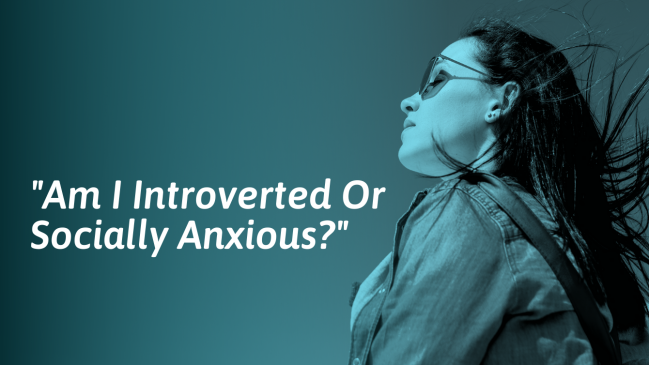

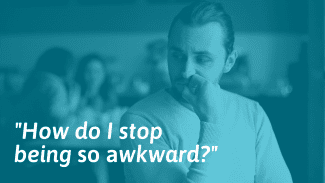



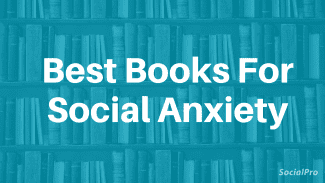
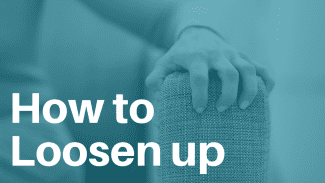
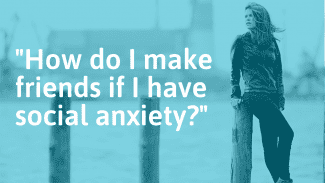
Hello Arlin,
learned a lot from your article on introverts and extroverts terms. thanks for sharing your expertise.
Hello! I recently started work at a new place and have been having trouble with actively joining in conversations. A lot of other newer colleagues are always very talkative with everyone but I personally find it hard to share anything about myself. I also like to ‘save’ my voice for when I’m required to talk (I present quite a lot in my job). I find myself listening to others conversations rather than having conversations with them. What should I do in this situation?
Nice article, really cleared things up for me